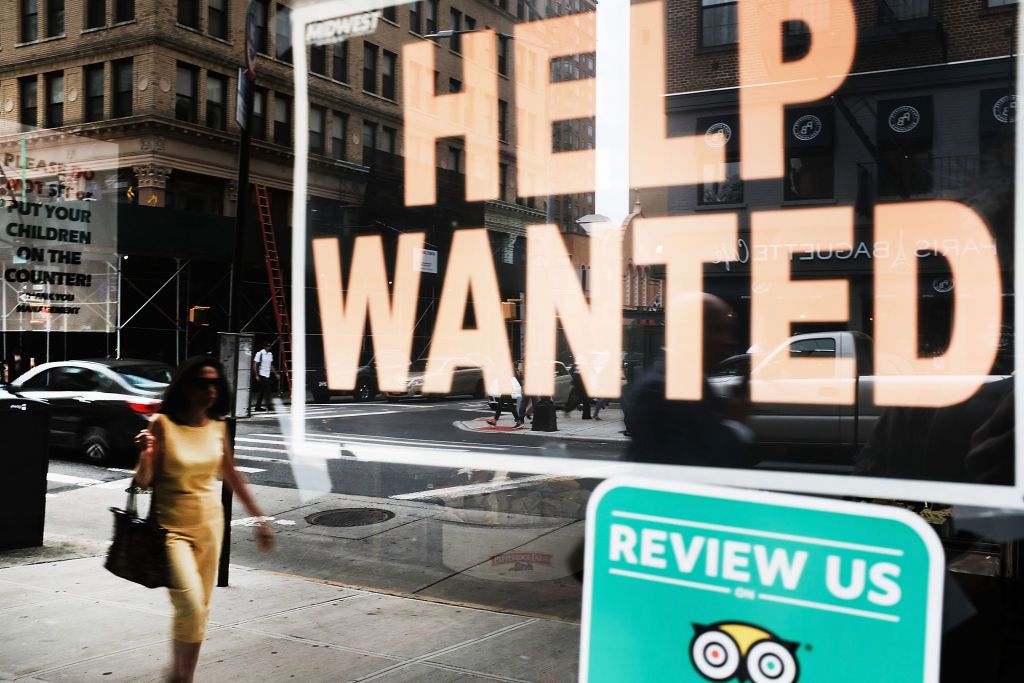Black Women’s Unemployment Rate Rises As They’re ‘Still Being Left Behind By The Recovery’
January’s jobs report showed that the nation’s overall unemployment rate continues to drop, but economists have warned those numbers could be tantamount to fool’s gold as it’s been a struggle to create new jobs during the pandemic.
And while the Black unemployment rate has steadily declined in recent months, it still remains head and shoulders over any other demographic. Complicating that matter is the fact that while the unemployment rate dropped for all of Black workers and Black men, it actually rose for Black women, according to the monthly data provided by the U.S. Bureau of Labor Statistics.
Black unemployment stood at 9.2% for January, compared to 9.9% in December. For Black men, the rate dropped a full percentage point, from 10.4% to 9.4%. At the same time, though, Black women saw their rate of unemployment inch up by a small but meaningful increment from 8.4% to 8.5%.
Women from other ethnic backgrounds, including Asians and Latinas, also saw their respective unemployment rates rise. White women, meanwhile, enjoyed the lowest unemployment rate of all groups. The combination prompted the Center for American Progress, a nonprofit bipartisan thinktank, to tweet that “Black, Hispanic, and Asian women are still being left behind by the recovery.”
This #JobsReport shows that Black, Hispanic, and Asian women are still being left behind by the recovery.
Black women’s unemp. rate
to 8.5%
Asian women’s (not seas. adjusted) rate7.9%
Hispanic women’s8.8%
White women have the lowest unemp. rate of any group at 5.1%.— CAPWomen (@CAPWomen) February 5, 2021
The Center for Economic Policy and Research (CEPR) said in a press release Friday that the January jobs report showed the extent of former President Donald Trump’s economic failures, emphasized by the fact that there were nearly 3 million fewer jobs last month than when he first took office in 2017.
One positive about January’s jobs report is that wages have begun to grow to “healthy” levels, CEPR said. Previous iterations of the jobs report showed wage growth was dropping because of a lack of so-called “good jobs.”
The ironic part of January’s jobs report indicating unemployment for Black women has risen is the consensus that Black women have comprised the bulk of essential workers during the pandemic, which has shown no signs of getting better anytime soon despite a massive, albeit flawed, effort to vaccinate America.
The jobs report was released hours before President Joe Biden cited it as a reason for the urgency for his $1.9 trillion stimulus package to be approved by Congress.
“I know some in Congress think we’ve already done enough to deal with the crisis in the country,” Biden said. “Others think that things are getting better and we can afford to sit back and either do little or do nothing at all. That’s not what I see. I see enormous pain in this country. A lot of folks out of work. A lot of folks going hungry.”
Earlier in the day, Vice President Kamala Harris, the first Black woman to serve in that office, broke a tie and approved the Senate budget resolution with a 51-50 vote for Biden’s economic relief package to pass without needing Republican support.
A report from the Economic Policy Institute last summer found that not only were Black women workers crucial during the pandemic, but they are also “greatly underpaid” for their efforts, earning pennies on the dollar compared to “non-Hispanic white men with the same level of education, age (a proxy for work experience), and geographic location.”
SEE ALSO:
VP Kamala Harris Makes First Tie-Breaking Vote On Resolution To Pass COVID-19 Rescue Package
One Month Later: Why Georgia’s Runoffs Were A Game-Changer For The Diversity Of The Federal Courts
[ione_media_gallery id=”3903711″ overlay=”true”]

